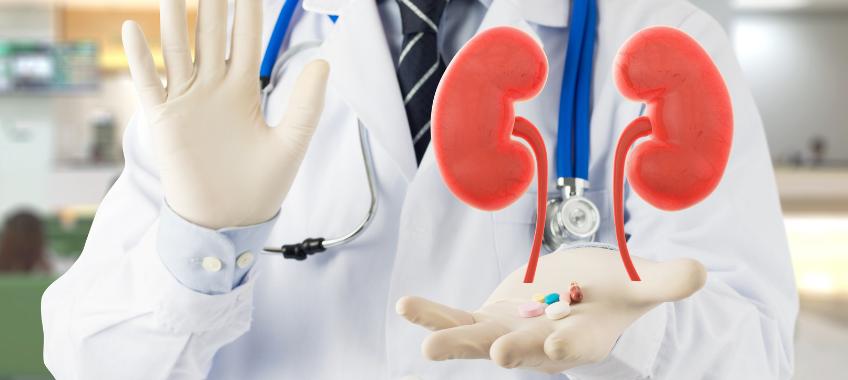The kidneys are two bean-shaped organs, weighing approximately 160 mg each or of the size of our fist and are located just below the ribcage on the sides of your spine. Each kidney is composed of specialized 1,000,000 functional units called nephrons. The kidneys perform a multitude of important functions. These include:

- Filtration of blood and excretion of waste products:
Your kidneys filter approximately 200 litres (yes you read it right!!!) of blood every day, eventually producing 1-2 litres of urine. The body produces various waste products during the 24-hour metabolism and all of these get accumulated in the blood and reach the kidneys. The blood passes through specialized blood vessels and is filtered. The filtered material or filtrate then passes through a complex series of tubes called renal tubules. During the passage through this complex system, the kidneys eliminate various waste products such as urea, creatinine and uric acid. Also, during this process, your kidneys re-absorb a lot of important vitamins, chemicals, glucose and other substances. This complicated and intricate system helps in preserving important substances for your body and eliminating harmful toxins.
- Maintaining water and electrolyte balance:
You would be passing litres and litres of urine if the kidneys do not reabsorb the water in the process of making urine. Your kidneys sense the amount of water in the body. You can yourself notice this ability of your kidneys to sense your fluid intake. If you drink a lot of water, then your kidneys will make light to clear coloured urine and the quantity also increases. Whereas on days when you do not drink enough water, you will make concentrated, darker urine in reduced quantity. As the filtrate is passing through the specialized tubules in the kidneys, various sensing mechanisms help the kidneys retain or lose important electrolytes such as sodium and potassium.
- Regulate blood pressure:
The kidneys play a pivotal role in maintaining and regulating blood pressure. This is done through the secretion of various hormones like renin and also by regulating the salt and water balance of your body.
- Formation of blood:
The Kidneys secrete a hormone called erythropoietin. This chemical stimulates the marrow in the bones to make more red blood cells. This is why people with damaged kidneys have low hemoglobin.
- Keep bones healthy:
The Vitamin D that you have in your diet needs to be altered and activated. This activation occurs in the kidneys and it is this activated form of vitamin d that is important for calcium absorption and bone and muscle health.
- Maintain osmolality and pH levels:
The kidneys help maintain the concentration of various blood and body fluids and also eliminate extra acid from the body.
The kidneys are vital life-sustaining organs and function at a very complex level. It is thus important that we care for our kidneys for a healthier life.
